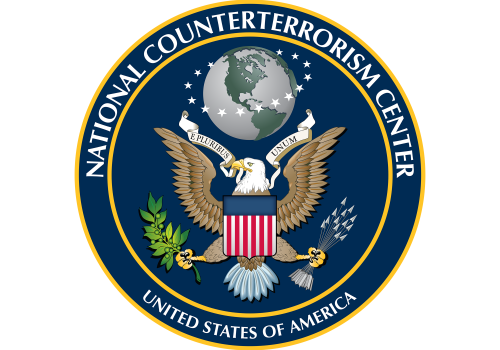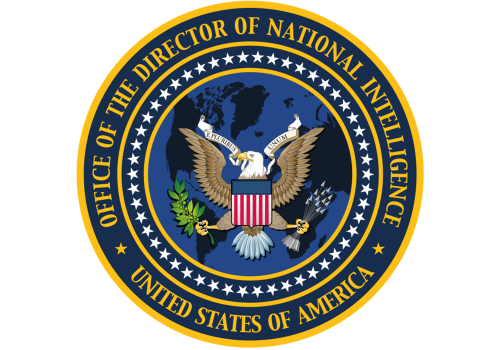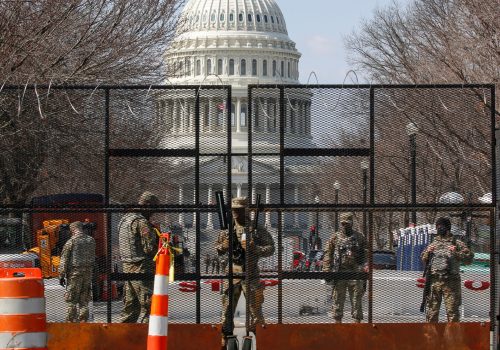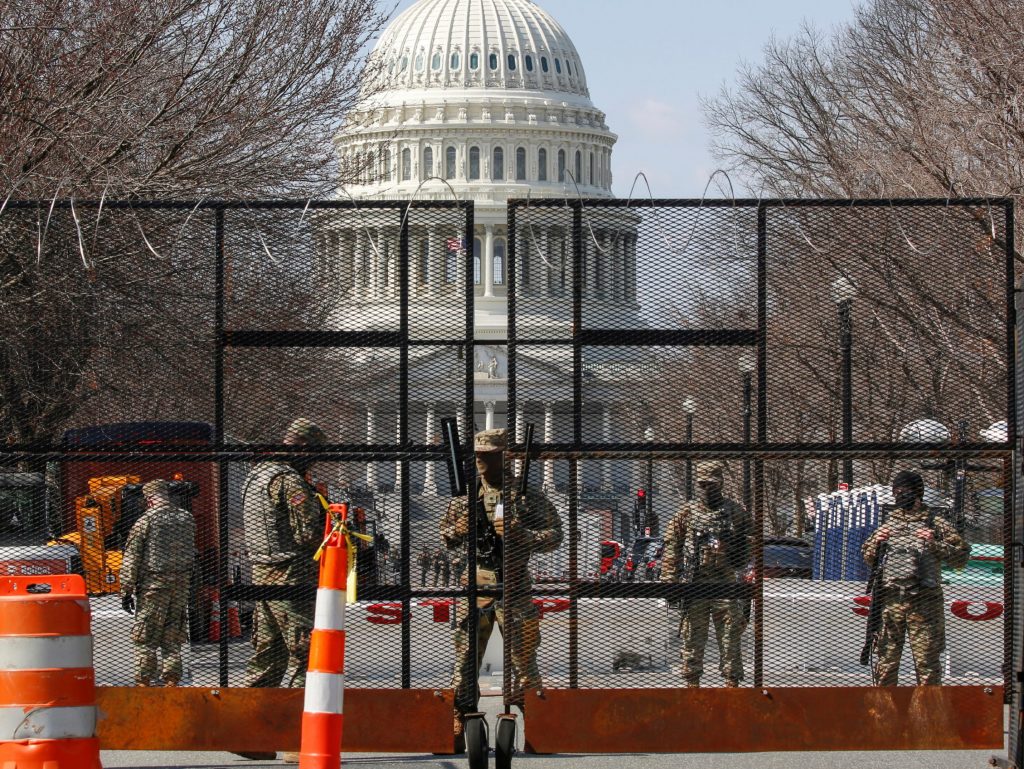Domestic violent extremism and the intelligence challenge
In the immediate aftermath of the attacks of September 11, 2001, amid discussion of an “intelligence failure,” the United States government reformed the structure of the federal government, formed a new department dedicated to homeland security, changed the architecture of the intelligence community, and created a director of national intelligence. In the wake of the storming of the Capitol building on January 6, 2021, there is yet again discussion of “intelligence failures.”
The critical gaps on the domestic side of the post-9/11 intelligence architecture call for reforms in how domestic counterterrorism intelligence is organized and led. Although January 6 was not a “complete intelligence failure” as some have described, it is clear that it was a multi-point failure in the current collection, analysis, and warning system—specifically geared toward domestic violent extremists. There are calls to reform the intelligence community, both to prevent a repeat of this type of event and, more broadly, to combat “domestic terrorism,” domestic violent extremism (DVE), or “racial or ethnically motivated violence” (REMV). Changes must be made to the current US intelligence architecture to face this new and changing threat environment in a way that maximizes intelligence success against the domestic violent-extremist threat and prevents future surprise attacks in the homeland.
The Atlantic Council report, “Domestic Violent Extremism and the Intelligence Challenge,” by Mitchell D. Silber presents recommendations to improve the effectiveness of the post-9/11 intelligence architecture against the domestic violent-extremist threat, and reform the intelligence architecture, including a more robust collection of social media content, and the creation of a Domestic Violent Extremism Unit (DVEAU) inside the National Counterterrorism Center (NCTC), which would report to the Director of National Intelligence. The May 11, 2021 announcement by DHS Secretary Mayorkas of the restoration of a domestic terrorism branch within the Department’s Office of Intelligence & Analysis (I&A) does not change the need for a more substantial unit within NCTC.
The study identifies a need for improvements in the following areas:
Through two charts included in the report, the study also attempts to show how the current intelligence architecture is structured and how an enhanced and new domestic intelligence architecture should be modeled after, in order to face the new and changing threat environment in a way that captures the complexities around domestic violent extremism.
Current domestic intelligence architecture
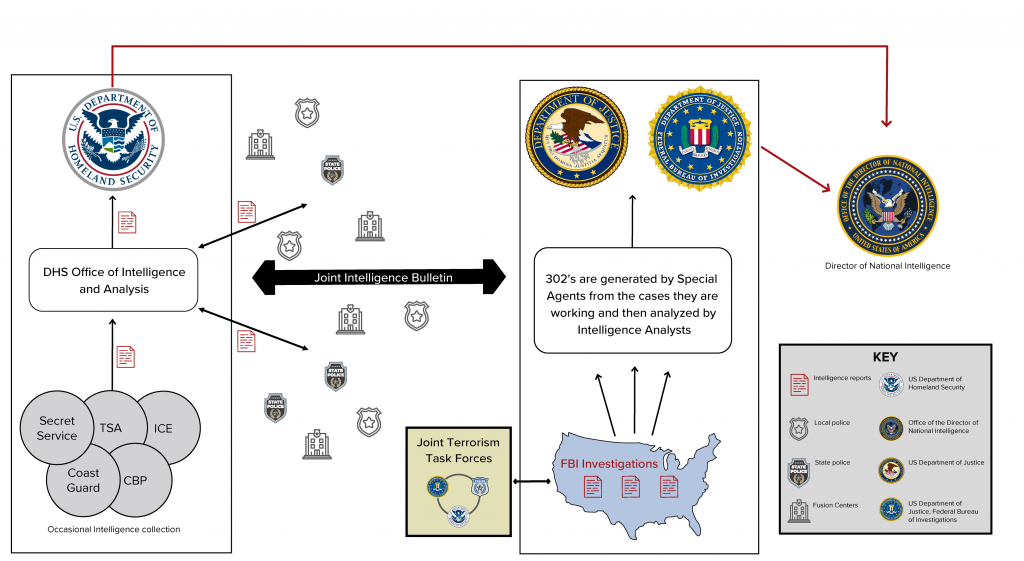
New domestic intelligence architecture
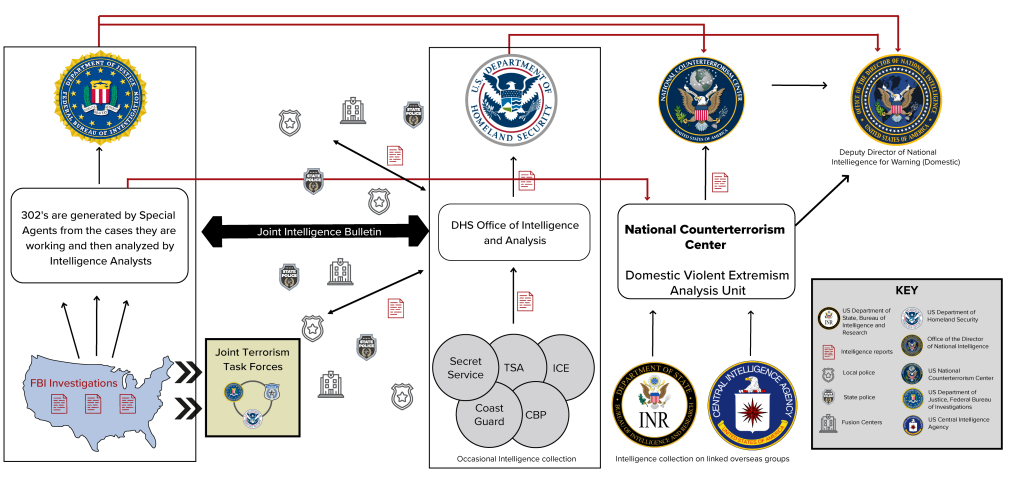
The DVEAU would be the central repository in the federal government for systematically collecting, analyzing, and disseminating data on acts of domestic violent extremism. It would be run by a professional intelligence officer and staffed with intelligence analysts, each charged with specific responsibilities to become subject-matter experts on domestic violent-extremist groups. However, it would not itself conduct criminal investigations, nor have arrest authority. This unit would sit inside the National Counterterrorism Center (NCTC), rather than the FBI or DHS. To place it in the FBI would risk its resources being pulled into case investigations. DHS is also a suboptimal location for this unit. Besides potentially being again subject to politicized intimidation, in the decade and a half since its inception, DHS Intelligence & Analysis (I&A) has not demonstrated a robust capacity to excel at this type of intelligence work. However, expanding NCTC’s purview to domestic terrorism (and the lines between domestic and international are already blurring), may require a legislative adjustment to the Intelligence Reform and Terrorism Prevention Act of 2004.
This report is made possible by the Atlantic Council’s Scowcroft Center for Strategy and Security and its Foward Defense practice area’s Future of DHS Project in partnership with the Scowcroft Middle East Security Initiative.
For media inquiries, please contact press@atlanticcouncil.org.
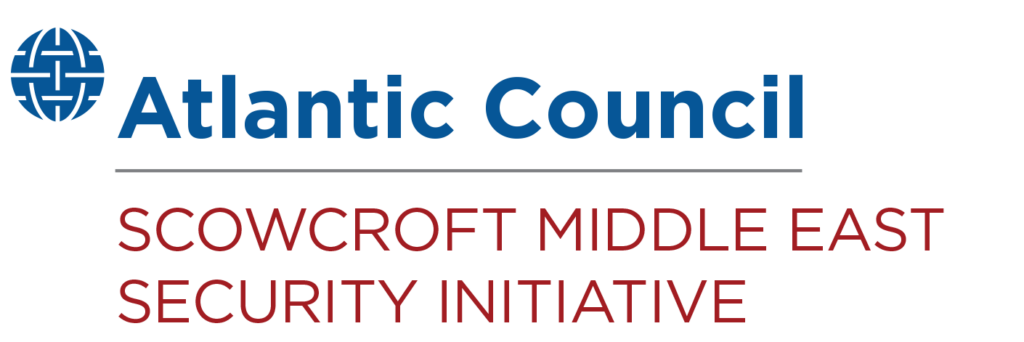
The Scowcroft Middle East Security Initiative (SMESI) provides policymakers fresh insights into core US national security interests by leveraging its expertise, networks, and on-the-ground programs to develop unique and holistic assessments on the future of the most pressing strategic, political, and security challenges and opportunities in the Middle East.

Counterterrorism Study Group
The Counterterrorism Study Group is a forum for former counterterrorism officials to review the latest threats, to understand emerging trends and future predictions, and to explore creative new proposals for improving the effectiveness of current policies and operations.
Image: National Guard soldiers stand guard behind a security fence near the U.S. Capitol after police warned that a militia group might try to attack the Capitol complex in Washington, U.S. March 4, 2021. REUTERS/Jim Urquhart/File Photo

